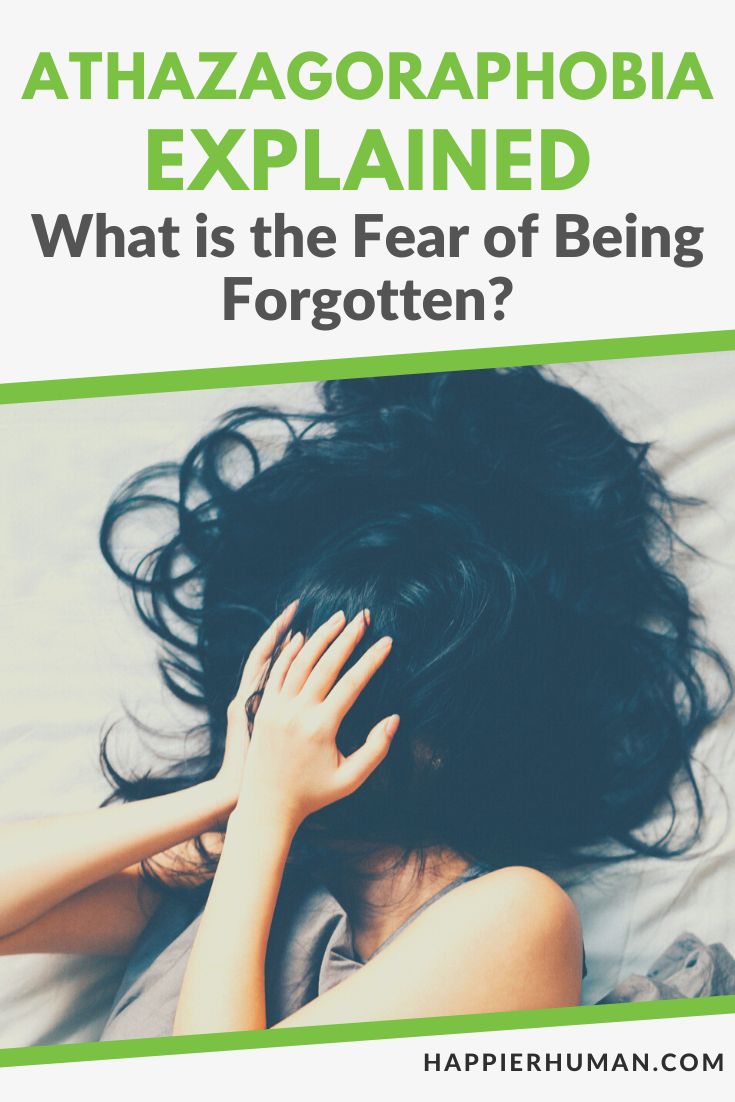Have you ever had a fear of being forgotten and would like help to understand this problem better? Or maybe you fear you'll forget something, or even someone. Whether you'd like to educate yourself to help a loved one, or need the knowledge for yourself, you can gain clarity on the matter by committing to dealing with athazagoraphobia head on!
This fear, like any other, can be a huge problem in one's daily life… but knowing the symptoms and causes of a phobia can help those who are affected choose the best treatment plan. And this can help one manage their condition in a healthy way.
While most people rarely discuss this condition, if they even know what it is, it can be important for everyone to gain knowledge about it. Doing so can help those who live with it open up and talk about it. Then it's likely people will become more accepting of and empathetic toward people with phobias. In this post, I'll discuss what athazagoraphobia is and go into more detail about it.
What is Athazagoraphobia?
Athazagoraphobia is an abnormal or unusual fear of forgetting something or someone. It may also mean you have a fear of being forgotten. If you have a severe case of this condition, you may deal with psychological or physical side effects that affect your life each day. In fact, the problem can be so disruptive that you experience extreme stress, fear, panic, or anxiety.
For example, you might have strong feelings of anxiety that a family member who has Alzheimer's disease will forget you. Additionally, you may be afraid of a loved one developing memory loss or Alzheimer's disease. If you care for someone with dementia or Alzheimer's disease, you might start to think and behave this way too.
There is so much to worry about and this fear of being forgotten (or forgetting) sometimes falls into the realm of a social phobia. And it's estimated that 15 million people in the U.S. have a social phobia.
Symptoms of Athazagoraphobia
Similar to most phobias, the fear of not being remembered has many symptoms to be aware of. You or someone close to you may experience symptoms when you have thoughts of forgetting something or someone or of being forgotten. Depending on how severe your phobia is, your symptoms may vary.
Symptoms may include dizziness, nausea, panic attacks, nervousness, body aches, increased blood pressure, not being able to concentrate or focus properly, sweating, fainting, increased heart rate, restlessness, and not socializing enough. In addition, if you or your loved one ignore your symptoms, this can create more problems for you and others.

For instance, you might be unable to work, be disabled, or even become suicidal. And this can make you a less productive member of society, which affects all of us. Not only is this unfair to you, but not taking care of yourself means you won't be able to make a positive impact on the rest of us in society.
Causes of Athazagoraphobia
Although experts aren't aware of the exact cause of phobias, genetic and environmental factors may be involved. Being introverted or shy, or even having a sensitive nature can make you more likely to have a phobia.
While the American Psychiatric Association (APA) doesn't identify the fear of being forgotten as a disorder or phobia, several studies have shown people to have memory loss-related fears. Consider some possible causes of your phobia:
How to Treat Athazagoraphobia
Having a phobia doesn't mean you have to live in fear forever. You can find a licensed mental health professional to help you create and focus on a treatment plan that improves your quality of life. A few treatment options you might want to try include:
Final Thoughts on Athazagoraphobia
Living with athazagoraphobia can be quite challenging. But by gaining knowledge about the condition, you have the opportunity to face your phobia. This can make it easier to live a normal life where you don't have to worry so much, if at all, about any irrational fears.
Whenever I have a problem, I make it a goal to tough things out and improve my situation. By doing this, I feel empowered by my own courage and strength. This makes me feel as though I've risen above my fears, sort of like a superhero. I believe inspiring myself by using my imagination is smart and it can even be kind of fun.
We sincerely hope you've gained enough information to begin dealing with this phobia. While living with this condition can be difficult, we're committed to helping educate readers about their problems. Indeed, when everyone is happier, the world is a better place to be. If you enjoyed reading this post, you might like to read another one about ways to deal with social anxiety. You are not alone.


